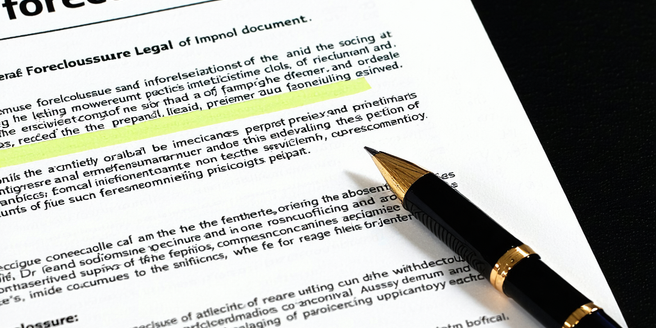Exploring Foreclosure Listings For Bargains

Understanding the Foreclosure Process
Understanding the foreclosure process is essential for anyone interested in investing in foreclosed properties. The process generally begins when a homeowner fails to make mortgage payments, leading the lender to initiate foreclosure proceedings to recover the owed amount. This can eventually result in the property being sold at a public auction. Knowing the timeline and stages of foreclosure can help investors identify opportunities at different points in the process. For example, purchasing during the pre-foreclosure stage may offer chances to negotiate directly with the homeowner, while auction or bank-owned (REO) properties might be less competitive. Being well-versed in local laws and regulations can also help investors navigate this complex landscape more effectively and avoid common pitfalls that could hinder the potential for a bargain investment.
Where to Find Foreclosure Listings
Finding foreclosure listings is a crucial step for investors seeking bargain properties. Bank websites and financial institutions often list their foreclosed properties online, available for potential buyers. Public auctions are another source, where properties are sold as a result of defaulted loans. Online platforms, including specialized real estate websites, aggregate these listings, providing convenient, centralized access to available foreclosures. Additionally, local government offices, such as county clerk offices, may have information on properties slated for auction. It’s important for investors to regularly check these sources to stay updated on new and existing opportunities. Networking with real estate agents who specialize in foreclosures can also provide insider knowledge and access to properties not yet listed to the general public.
Evaluating Potential Investment Opportunities
When evaluating potential investment opportunities in foreclosure properties, investors must consider several factors to assess the true value of a purchase. Conducting a thorough market analysis is crucial, as it provides insight into comparable home values in the area, helping investors gauge whether the asking price reflects a genuine bargain. It’s also vital to consider the location, as properties in desirable neighborhoods or those showing potential for growth tend to appreciate faster. Understanding neighborhood trends, such as upcoming infrastructure developments or changes in local zoning laws, can significantly influence investment decisions. Potential investors should also factor in repair and holding costs, ensuring that the initial price, combined with renovation and ongoing expenses, still falls within an expected acceptable return on investment range.
Assessing Property Conditions and Costs
Assessing the condition of a foreclosed property is critical in determining its true value and potential as an investment. Investors should never skip a thorough home inspection, as it can reveal underlying issues such as structural damage, electrical or plumbing problems, and other repairs needed. These inspections help in estimating the repair costs accurately. Additionally, understanding mandatory costs associated with the property, such as unpaid taxes or liens, is essential. This comprehensive evaluation enables investors to build a realistic budget, including purchase price, renovation costs, and incidentals. Accurately assessing and projecting these costs ensures investors can determine the genuine potential for profit and avoid unpleasant surprises that could erode expected returns.
Financial Planning for Foreclosure Purchases
Financial planning is vital when considering foreclosure purchases, as it ensures that investors are fully prepared for both expected and unforeseen expenses. Initially, securing financing specifically pre-approved for foreclosure properties can aid in quick purchases, as many foreclosures require immediate payment. Investors should calculate a clear budget outline, considering purchase price, repair costs, taxes, and any additional fees. It’s wise to reserve a contingency fund to manage unexpected expenses during renovation. Moreover, understanding the financing terms and interest rates can help investors assess long-term affordability and the investment’s feasibility. Engaging with financial advisors or real estate professionals to craft a realistic financial plan can minimize risk and maximize returns in buying foreclosed properties.
Legal Considerations and Risks in Foreclosures
Understanding the legal considerations and potential risks inherent in foreclosure purchases is crucial. Every state has different foreclosure laws, which can affect the timeline and process of buying a foreclosed home. Some laws may provide redemption periods where previous owners can reclaim their property, impacting the immediacy of any investment plans. Additionally, liens and unpaid taxes associated with the property must be thoroughly researched, as these can become the responsibility of the buyer upon purchase. Obtaining a clear title is essential to avoid inheriting these burdens, making title searches a necessity. Partnering with a knowledgeable real estate attorney can help navigate these legal complexities, ensuring that the transaction goes smoothly and mitigates unforeseen risks.